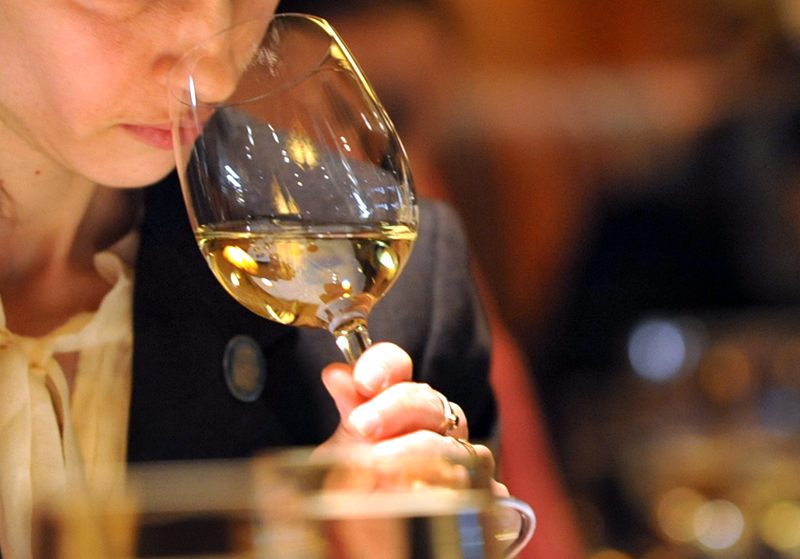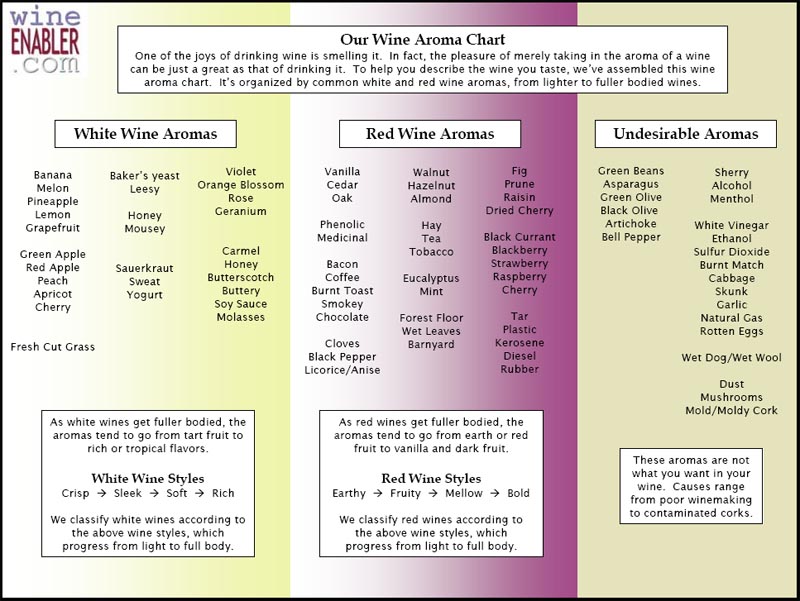Okay, so hopefully as we’ve gone through this wonderful journey of wine you are learning the occasional odd fact. Who knows, maybe something you can use on Jeopardy? We’ve covered the basics, then sight, sound and taste in our wine series. Yes, I’m slowly working my way through the senses. Why rush?
To begin let’s simultaneously review and encourage. I hope that you are gaining wine confidence. Have faith in your opinions, loosen up and enjoy the wine. Never worry about what some expert tells you on how wrong you are. You like the wine? Great, you aren’t wrong. Is everyone in their wine tasting happy place? That’s enough review, moving right along then.
Smell is inextricably tied to our sense of taste. We taste what we smell. The two senses are deeply entwined.
Okay, how about some friendly, practical advice on smelling your wine?
Step 1: You’ll need some wine.
Step 2: Do you have your drinking buddy? Everyone needs a drinking buddy… and money for cab fare.
Step 3: Pour the wine and swirl. (For a review on this check my “Tastes Like Street” post) Extra points if you swirl without sloshing that nice person on your left. The guy on your right had it coming.
Step 4: As you finish swirling bring the glass up, stick your nose into the bowl and inhale. Really get a good whiff. (The human nose fatigues after about six seconds, so don’t go nuts. Just one good whiff or people will turn and stare.) Some people like a couple quick sniffs, but I’m a fan of the one deep breath.

Step 5: Let your mind sort of wander as you process what you are smelling. Is it like a forest (woodsy), maybe fruity? Does it make you think of a garden? If you aren’t sure wait a moment and then try again.
Step 6: Proceed with the drinking.
See how easy that was? Next, a few do’s and don’t’s with smelling your wine. First, if you are going wine tasting it’s best not to wear a strong cologne or perfume. These will compete with the wine and can affect how it tastes to you. Second, likewise if you are in a restaurant or your kitchen and someone is cooking an aromatic sauce or fish or whatever, you probably aren’t going to get the aromas you expected out of your wine. There’s just too much competition around. Third, you may be standing next to someone who’s picking out five or six different aromas on the same glass of wine that you are holding. And here you were so proud to have picked up one scent. Don’t worry. Everyone has a different nose; yours isn’t broken. Feel free to practice. When you are at the farmer’s market or cooking, smell the ingredients. Build up a scent Rolodex in your head that you can pull from when you are wine tasting to identify and describe what you are smelling.
Side bar here: for those of you kids out there, a “Rolodex” was a little file that you kept phone numbers and contacts in before the days of your iPhone contact list. It was actually on paper. I know, archaic, but true.
Becoming more aware of the smells in your wine can help you know whether a wine is good or bad before you even taste it. I recently read a very handy piece on the Huffington Post regarding the six smells you do NOT want in your wine. Just click here to check it out for yourself.
For instance, if you smell wet dog or musty sheets you may have a wine that is “corked”. There is a naturally occurring bacteria called TCA which may contaminate wine. Too much of this and it ruins the wine. Other smells which are red flags are rotten eggs or the smell of a freshly lit match. These odors may indicate improper storage or spoiled wine.
Here are some good smells to look for and some bad ones to run screaming from (figuratively). Remember, this list isn’t everything, just a place to help you get started.

As always, there’s the vocabulary section. What? It’s true. Stop complaining, I don’t make this stuff up; I simply relay it to you. Talk to someone in charge. Where was I? Right, vocab time. Luckily for you, it’s a short list. When you are discussing wine it’s actually not a good idea to use the word “smell”. This is because “smell” and “odor” are deemed to lend a negative connotation while words like “aroma” and “nose” offer up a more positive spin. What about “bouquet” you ask? Well, technically it is interchangeable for “aroma” in most wine tasting circles but it is a little old-fashioned.
Questions? Comments? Concerns? It’s the weekend, so you’ll have to ask that guy on your right. You need to settle his dry cleaning bill anyway. Me? Oh, I’m off to find a glass of wine. All this typing has made me thirsty!
“Drink wine, and you will sleep well. Sleep, and you will not sin. Avoid sin, and you will be saved. Ergo, drink wine and be saved.”
– Medieval German saying
